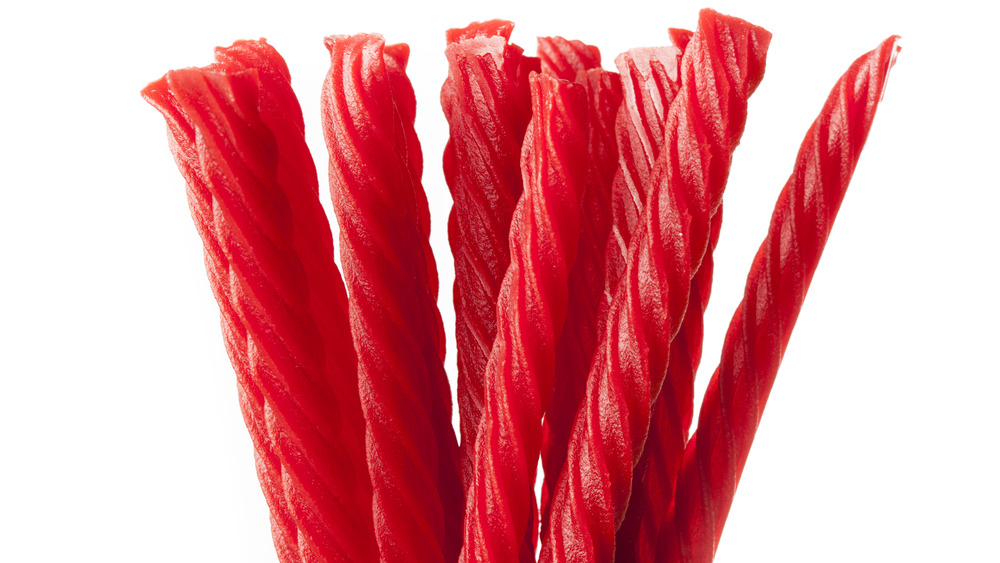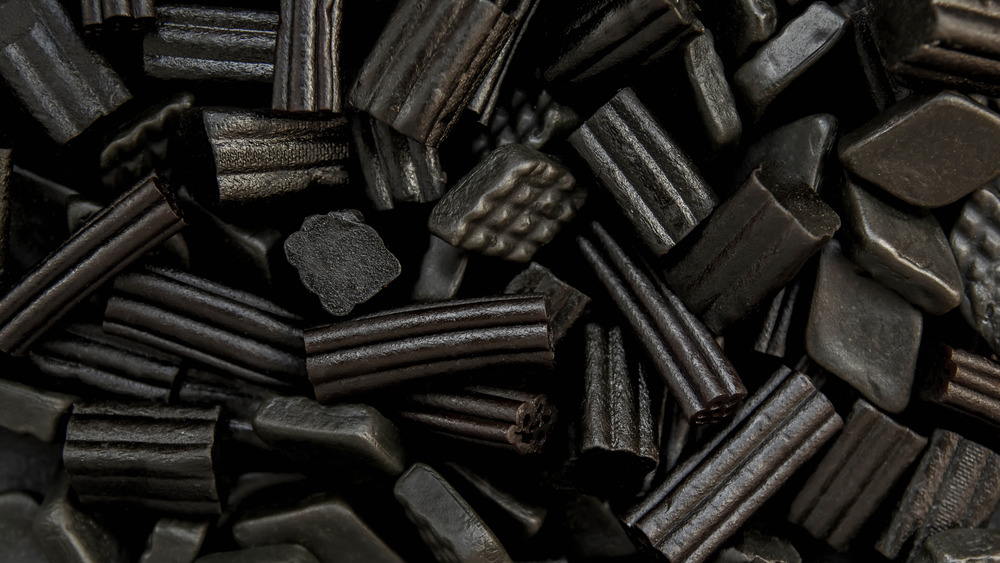Why Twizzlers Aren't Actually Licorice
One of the most absolutely polarizing foods, licorice rarely elicits a lukewarm response – you're likely to hear "ew!" or "I LOVE licorice" much more readily than "eh, it's okay." However, for the most part, Twizzlers, which can be polarizing in their own way, aren't real licorice but more of a loose spinoff.
HuffPost notes that the term licorice describes a plant as well as products flavored by licorice extract. The licorice plant comes from Southern Europe and Asia, and it's also currently grown in Greece and Turkey. According to Mental Floss, licorice candies got their start in 1845 in Brooklyn, where they were sold by a shop owned by the firm Young and Smylie. In 1929, Twizzlers made their debut, but it wasn't until Hershey's bought the original company that the candy became so ubiquitous.
While Twizzlers were sold under the umbrella of licorice candies, most versions (including the primary red variety) get their taste from artificial flavoring, not licorice extract. The one exception is the black licorice Twizzler flavor. The word licorice doesn't even appear on Twizzler packing, and the candies are typically referred to as 'twists." However, even despite all of this evidence, the Twizzlers = licorice notion is clearly still very prevalent.
A chemical compound helps set licorice apart from Twizzlers
HuffPost notes that licorice root can be used to treat certain health problems, such as sore throats, stomachache, fatigue, and respiratory issues. According to Boston.com, licorice root is used in Chinese medicine and features in Chinese cuisine. However, Livestrong says that consuming too much glycyrrhizic acid – a compound found in licorice extract – can cause various medical issues, such as numbness, swelling, headache, muscle pain, extreme tiredness, high blood pressure. USA Today reports that consuming too much licorice can result in low potassium – which can negatively impact your heart rhythm, among other issues – and that the FDA warns against eating huge amounts of it all at once. It's safe to say that you should certainly be careful not to consume too much black licorice!
It seems equally safe to say that Twizzlers are not medicine. But they also aren't known for the same scary side effects associated with licorice, so you can (not that you should) probably eat a lot more of them at a time. Interestingly enough, Mental Floss notes that Utah residents consume Twizzlers at twice the national rate. Furthermore, fun fact alert: Hershey's makes one million miles (!) of Twizzlers every year, which is enough to circle the globe over 40 times. So there's plenty to eat. Regardless of whether you're a licorice hater, a licorice lover, or a Twizzler fanatic – happy snacking (and be careful not to eat too much black licorice)!

